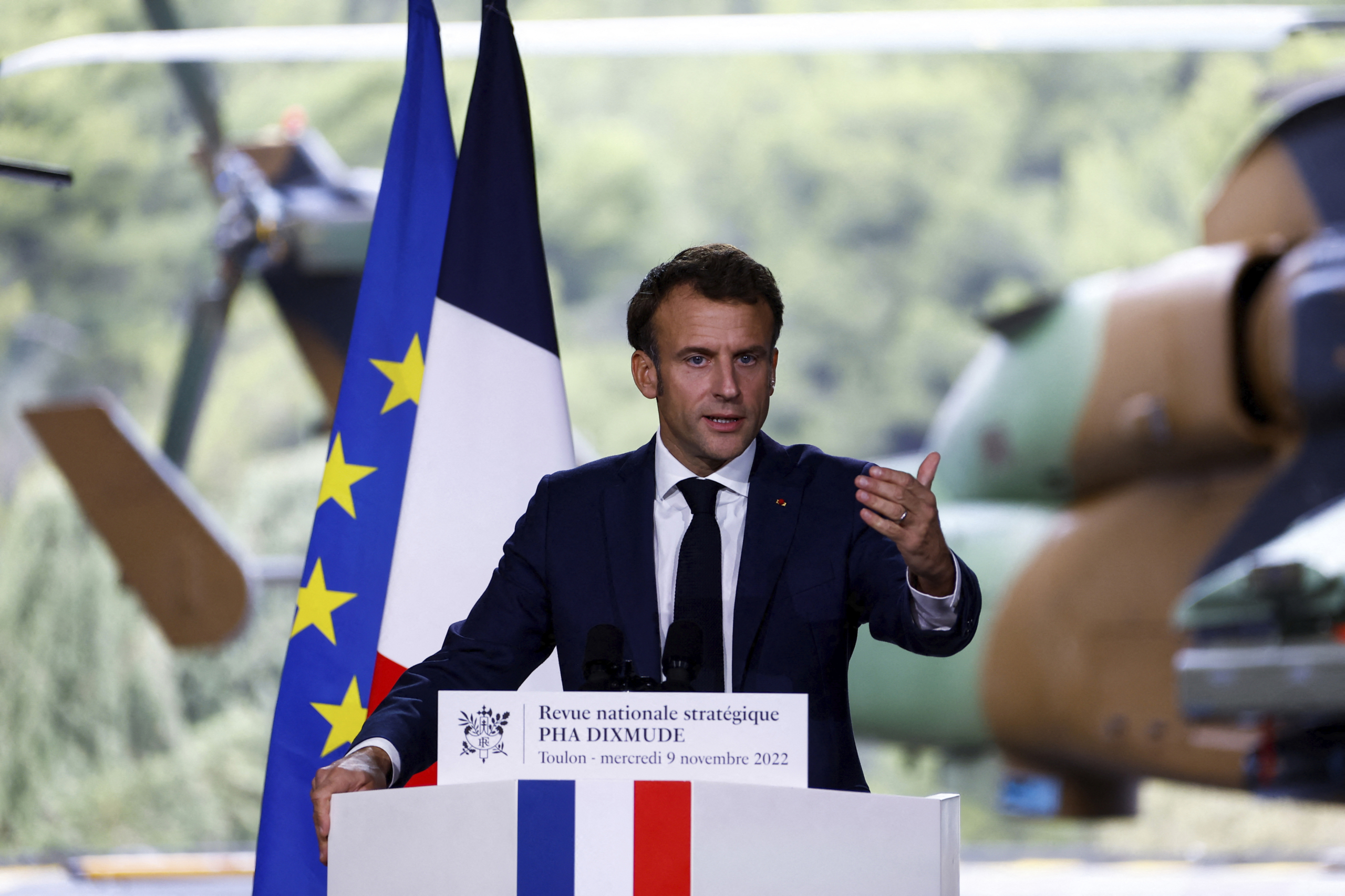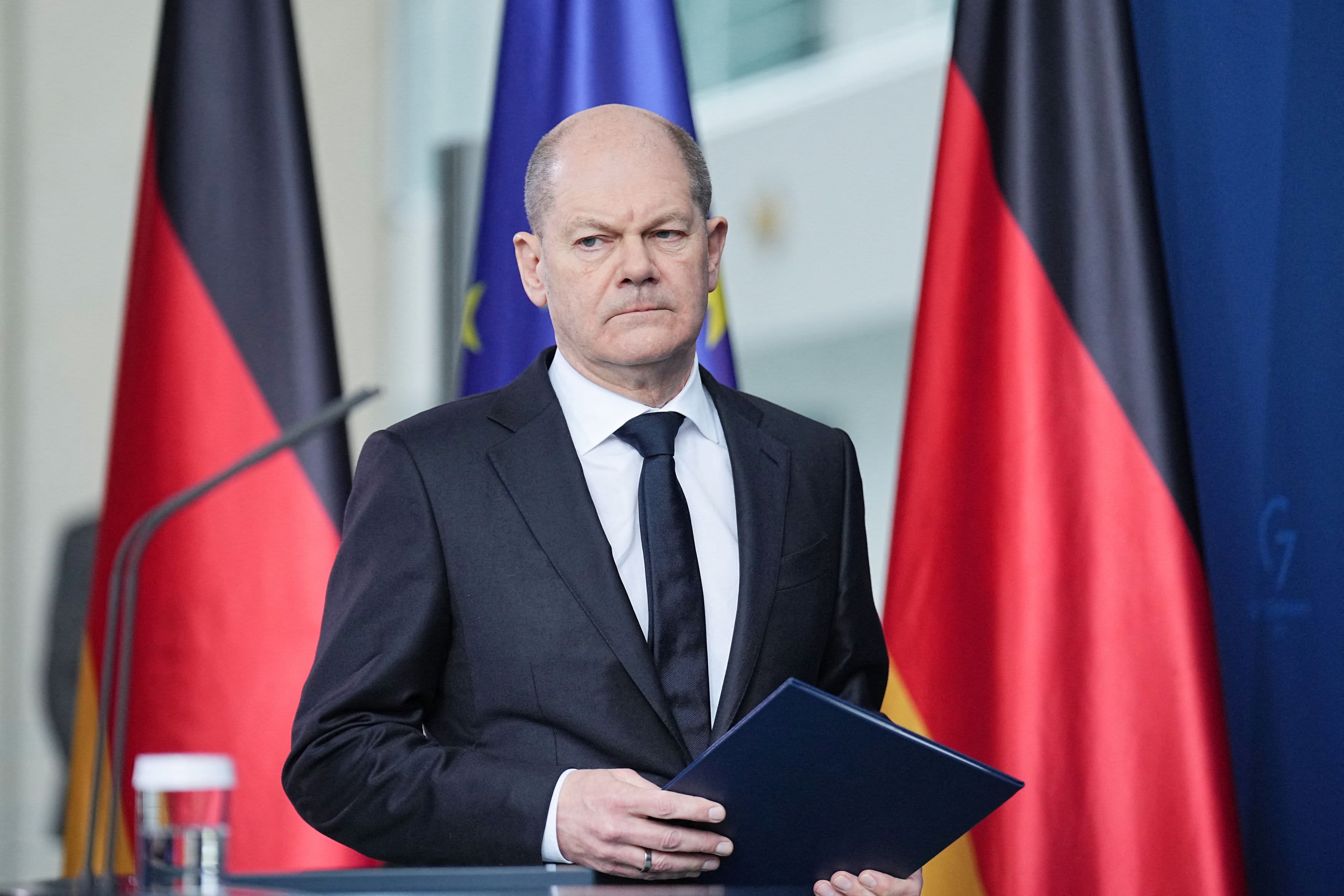German Rearmament 2022 - "If the world changes, our politics must change," German Foreign Minister Annalena Bierbock said three days after Russia launched an all-out invasion of Ukraine. So Berlin changed its policy, announcing defense investments that promised to end decades of falling behind Germany's allies. But if Berlin is to become a more competent actor in foreign, defense and security policy, German policymakers and practitioners must urgently focus on issues they have neglected for years: strategy-making; reforming government bureaucracies; changing decision-making structures and processes on foreign, defense and security policy; And explaining all this to the general public.
For the time being, the German people - and any observer of the country - could be forgiven for feeling the whiplash. In the last days of February, the pace of change in Berlin's policy is spinning. For three days, under heavy criticism from Germany's allies, after standing on sanctions and doubling Germany's long-range weapons shipments to conflict zones, the government also gave the green light to arms shipments to Ukraine. In an unprecedented speech on February 27, Chancellor Olaf Scholz announced additional German troops to NATO's eastern flank as well as the Bundeswehr and the creation of a 100 billion euro ($109 billion) special fund. A commitment to no more than 2 percent of GDP annually on defense spending. As Germany has the largest economy in Europe, this increase in spending will be absolutely significant. Two percent of Germany's gross domestic product will reach 75 billion euros by 2022, 25 billion euros more than Berlin plans to spend on defense this year. Pending parliamentary debate, the new special fund will be used to finance most of the increase over the next few years (there is still much uncertainty about the difference. Berlin, which has struggled for years to meet its NATO commitments, is now Europe's biggest military spender and poised to invest enough to become the world's third largest.
German Rearmament 2022

Scholz was more realistic, calling for progress on the stalled Future Combat Aircraft System project, announcing a push to buy armed drones, and pledging to keep the country in NATO's nuclear arsenal as a replacement for the aging German Tornado jets.
Germany To Increase Defence Spending In Response To 'putin's War'
Germans, for all their boring bureaucracy, are no strangers to major policy shifts. The current pace of the decision may lead some to wonder if Germany will decide to withdraw from nuclear power after Fukushima. The public push for solidarity with Ukraine is reminiscent of Germany's response to first opening its borders to Syrian refugees. Some remember the 1999 Kosovo intervention as a turning point when the Greens came into government. But such a change in defense policy has no historical parallel in post-war Germany.
The last major German debate on foreign and security policy in 2014 was sparked by then-President Joachim Gauck's call for Germany to take more responsibility in the world. In the following years, however, the debate became more nuanced. The main political parties have refrained from saying what this responsibility should be, with Chancellor Angela Merkel staying away from the debate. With little interest in formulating a strategy, the country and the world spent months reading tea leaves in half-sentences in a beer tent in 2016, declaring that a post-Trump Europe "had to partially accept our fate." With her own hands.” He never followed her.
The changes are different. Scholes takes a stand and takes responsibility for the implementation of the kingdom.
It is not a natural fit. This major shift in German defense comes from a government led by a Social Democratic Party chancellor, who has traditionally supported pro-Russia policies, a Green Party foreign minister and a finance minister rooted in the pacifist movement. A Free Democratic Party minister, he has long been committed to an austerity budget. Many foreign observers believe that Angela Merkel's conservative party in 2010 He is concerned about what Germany's defense policy will look like after he steps down as Germany's military chief in 2021.
The Rearmament Of Europe In The Aftermath Of The Ukraine War
The scale and brutality of President Vladimir Putin's aggression against Ukraine has popped a bubble in Berlin's long-standing Russia policy. His main concepts - Germany as a mediator between East and West, the hope that economic ties will prevent conflict and that European security can only be achieved with Russia, never against it - no longer exist. For many Germans, the invasion of Ukraine, a two-hour flight from Berlin, has fueled the illusion that military power is no longer a tool of influence in Europe.
Upon these sudden and violent realizations, the new governing coalition was formed. What the ruling parties lack is the ability to review and evaluate long-term policies and the creativity to avoid traditional red lines (for example, the off-budget fund that allowed the liberal Free Democrats to confront the anti-debt fiscal extremists). The proposed changes were supported not only by the ruling coalition but also by the largely conservative opposition. However, hard work still comes.
A few days after Scholes' speech, the debate among parliamentarians has already turned to the question of how exactly the 100 billion euro special fund will be used - all of them have raised some question about whether it should go to the Bundeswehr first. The debate risks devolving into the same situation as previous German security exchanges: the money talks come amid discussions about the fundamental structural and cultural changes that must take place if Berlin is to use and pursue money more effectively. A more corporate foreign and security policy.

First, any subsequent spending and reforms must increase efforts to explain foreign and defense policy to the wider German public. Germany's defense debates are often very abstract, held in a local community and dominated by the question of whether or not to spend more money. Public observation will naturally increase as the public is now more aware of major threats and knows that German defense and security actors have significant new resources.
Turkey Slams Germany For Losing Neutrality As Mediator
The shock of Putin's attack to many Germans will go a long way to bolstering public support for Berlin's new policy. In the days following Scholz's speech, national polls showed overwhelming support for both arms exports to Ukraine and new defense funding — a stark reversal from previous weeks. This must end when German politicians somehow hide their unwillingness to adequately fund the Bundeswehr behind the image of the naturally pacifist German people. But public understanding is weak. Voters may soon feel the impact of sanctions against Russia in their own wallets. Even if the support remains—Russia's aggression is clearly unknown, Putin is undeniably belligerent and averse to diplomatic fumbles—future conflicts may not be so clear-cut. They need political leadership.
A German governing coalition with an active and well-equipped armed force is a necessary condition for a forward-looking, active German foreign and defense policy, but not sufficient. Germany's defense policy debate has finally had a chance to break away from the ideologies that have dominated it for decades - investments in the Bundeswehr ("military force") versus investments in development aid and civilian measures ("peace"). The value of discussing what exactly to do with the money. For more concrete arguments, the government should propose that investment in the military can be accompanied by strong diplomacy. arms control efforts; and strengthen international law, human rights and civilian efforts to resolve conflicts and crises.
It will take more than a public debate to make the case and turn the citizens into this vortex of German security policy. At the very least, the ruling coalition should realize the long-term idea of holding an annual public debate in parliament on the state of Germany's foreign and security policy. In addition, members of parliament, relevant ministries, the Ministry of Foreign Affairs, the Ministry of National Defense and opinion research experts should strengthen their efforts to discuss foreign and security policies with policy makers by preparing models for discussion and explanation with the public.
Germany's new national security strategy could encourage such discussions. Coincidentally, the new government committed to writing such a strategy this year, the first of its kind in Germany, shortly after last fall's election. At the same time, German policymakers will contribute to shaping the strategy of the European Union, which they plan to agree on the Strategic Compass in the spring of 2022 - as well as a new strategic concept for NATO in the summer.
The Russia Ukraine War And Its Ramifications For Russia
It's a big job full of difficult questions. What should be replaced?
Sig p365 tulster holster, sig p365 iwb holster, sig holsters p365, sig p365 sas holster, sig p365 xl holster, sig p365 hybrid holster, appendix holster sig p365, safariland holster sig p365, sig p365 belt holster, sig p365 holster, sig p365 purse holster, sig sauer p365 holster

0 Comments